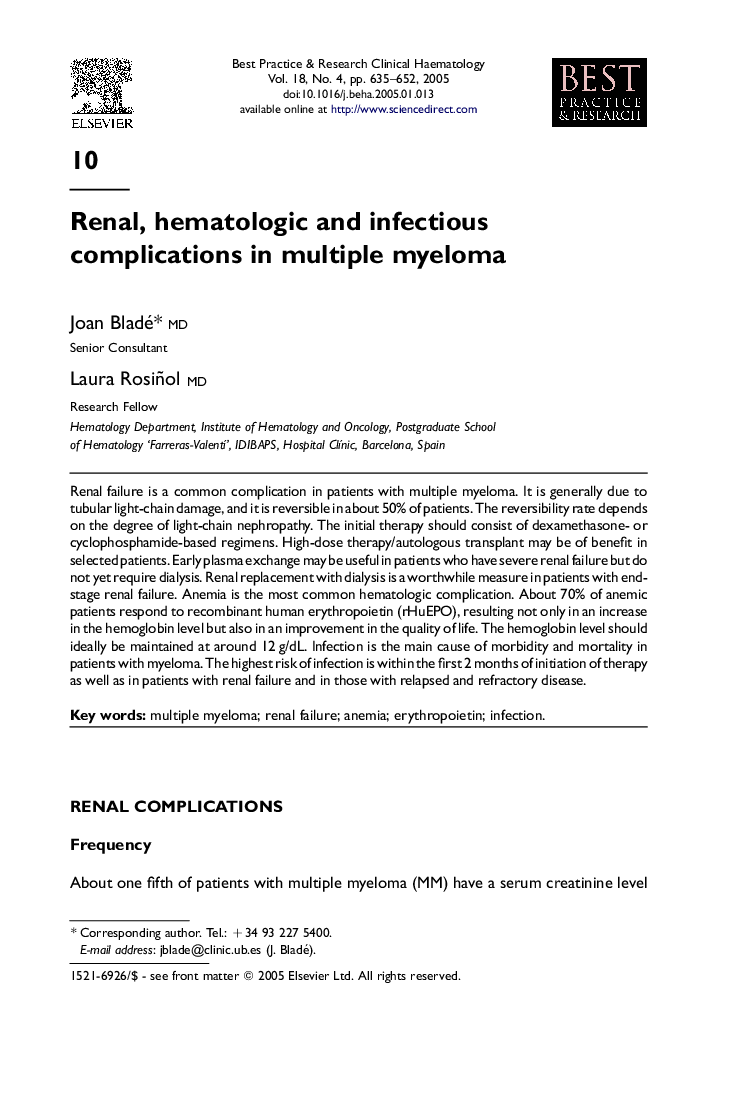| کد مقاله | کد نشریه | سال انتشار | مقاله انگلیسی | نسخه تمام متن |
|---|---|---|---|---|
| 10895260 | 1083009 | 2005 | 18 صفحه PDF | دانلود رایگان |
عنوان انگلیسی مقاله ISI
Renal, hematologic and infectious complications in multiple myeloma
دانلود مقاله + سفارش ترجمه
دانلود مقاله ISI انگلیسی
رایگان برای ایرانیان
کلمات کلیدی
موضوعات مرتبط
علوم زیستی و بیوفناوری
بیوشیمی، ژنتیک و زیست شناسی مولکولی
تحقیقات سرطان
پیش نمایش صفحه اول مقاله

چکیده انگلیسی
Renal failure is a common complication in patients with multiple myeloma. It is generally due to tubular light-chain damage, and it is reversible in about 50% of patients. The reversibility rate depends on the degree of light-chain nephropathy. The initial therapy should consist of dexamethasone- or cyclophosphamide-based regimens. High-dose therapy/autologous transplant may be of benefit in selected patients. Early plasma exchange may be useful in patients who have severe renal failure but do not yet require dialysis. Renal replacement with dialysis is a worthwhile measure in patients with end-stage renal failure. Anemia is the most common hematologic complication. About 70% of anemic patients respond to recombinant human erythropoietin (rHuEPO), resulting not only in an increase in the hemoglobin level but also in an improvement in the quality of life. The hemoglobin level should ideally be maintained at around 12Â g/dL. Infection is the main cause of morbidity and mortality in patients with myeloma. The highest risk of infection is within the first 2 months of initiation of therapy as well as in patients with renal failure and in those with relapsed and refractory disease.
ناشر
Database: Elsevier - ScienceDirect (ساینس دایرکت)
Journal: Best Practice & Research Clinical Haematology - Volume 18, Issue 4, December 2005, Pages 635-652
Journal: Best Practice & Research Clinical Haematology - Volume 18, Issue 4, December 2005, Pages 635-652
نویسندگان
Joan (Senior Consultant), Laura (Research Fellow),